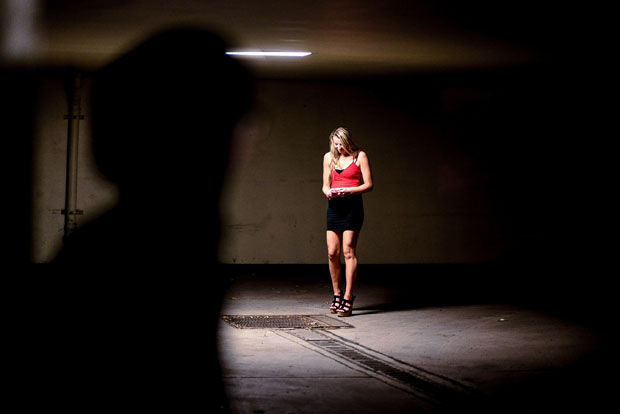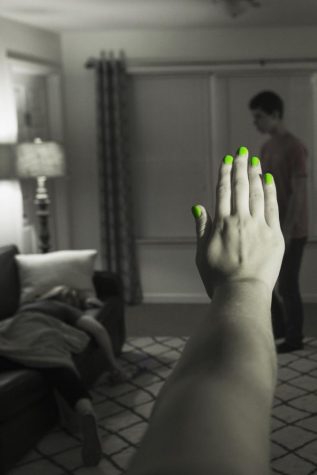Police Commander: Increasing number of reported sexual assaults is a sign of progress
February 6, 2015
An increase in reported sexual harassment and assault cases in Pullman may be just want this town needed.
Police Commander Chris Tennant views this trend as a step in the right direction.
“This is going to sound weird, but I actually take the increase in reports as an encouraging progress,” Tennant said. “I don’t believe there’s an actual increase in the number of incidents, I think we are doing a better job as a community on recognizing and reporting those incidents when they occur.”
The increased community awareness means more reported incidents, not necessarily more assaults overall. Tennant said just because a situation is not being routinely reported, it doesn’t mean it’s going away.
“I really don’t think that young adults have changed their behavior in any drastic way when it comes to the actions of sexual assault,” Tennant said. “I think we have just as many now as we did five years ago.
Kim Anderson, Title IX coordinator and director of the Office of Equal Opportunity (OEO), is charged with coordinating Washington State University’s efforts to prevent sex and gender-based violence in order to keep the university in compliance with Title IX regulations.
“We investigate allegations of sexual harassment that range from trying to convert a professional relationship to a personal relationship, as well as all the way to sexual assault,” Anderson said.
If a student victim comes directly to the OEO to report an incident, an interview is conducted to assess their concerns.
“Often we actually learn about it through a third party and then we will reach out to the student with information about processes and resources and options, and then they get to decide whether they want to come in and talk with us,” Anderson said.
The OEO encourages students to bring a support person with them for the interview. Often, students will bring a close friend or an advocate from Alternatives to Violence of the Palouse (ATVP).
ATVP provides 24-hour emergency and supportive services to victims of sexual assault and domestic violence.
“We are the ones who can be there for a survivor throughout the entire process,” said Emilie McLarnan, assistant director of ATVP. “Survivors are our priority, and we just really try to help people navigate the system that they would not otherwise have to deal with.”
After deciding if an investigation is appropriate, the OEO will send written notification to the respondent, or the accused, of the incident. This includes a brief description of the process and a list of all available resources.
The OEO will then begin its investigation, which involves interviewing witnesses and collecting information. This process produces a memorandum that is addressed to Adam Jussel, the director of student standards and accountability.
“I determine, depending on the nature of the memorandum and whether there’s a violation or not, whether it’s appropriate to be handled by a conduct officer, so just an individual conduct officer in my office, or the university’s conduct board,” Jussel said.
As the Student Conduct Board has the authority to suspend or expel students, all sexual assault cases move directly to the board.
“Once that matter is referred to the conduct board, the conduct board renders a decision, and then we notify both the complainant and the respondent at the same time, and then both parties have the right to appeal to the University Appeals Board,” Jussel said.
The appeals board is entirely separate from the conduct board and reviews all documents in the case. Once reviewed, the decision made by the appeals board is final.
“It’s a lot different than the criminal process, as our process is largely educational,” Jussel said. “When students make a mistake, my job is to provide them with education, so that way they don’t make that mistake again in the future and in similar circumstances, they know how to react.”
The conduct board and the appeals board are staffed by both administrators and students.
“We have students that sit on our conduct board, it makes sure that the student voice is heard in our conduct process,” Jussel said. “One thing we want to make sure is that it isn’t just a bunch of administrators rendering decisions.”
If the accused is not a student or employee of WSU, the OEO will assist in reporting the crime to the police. If the accused is a member of another university community, the OEO will also assist in contacting the other university.
Students who speak to the OEO are not required to report crimes to the police, but the OEO is not a confidential source: if there is a threat to the individual or the community, the OEO is required to report the incident to the police.
“But, to the extent possible, we want to empower individuals to make their own decisions about what processes they want to participate in and who they want to share their information with,” Anderson said.
For victims of sex and gender-based violence, there are various resources on and off campus.
The Violence Prevention program, coordinated by Nikki Finnestead, is based out of Health and Wellness services and oversees the Green Dot program.
“What we’re trying to do is shift the campus norms, which support or directly contribute to gender-based violence on our campus,” Finnestead said. “We really want to engage everyone as bystanders to recognize the warnings signs and feel confident in doing something to make it less likely that these kinds of violence will occur.”
The Green Dot program is administered during Alive!, and every WSU student is required to attend the program, during which they receive information about violence prevention and awareness.
“We want to shift the focus away from victims and what victims should be doing to protect themselves,” Finnestead said.
ATVP provides free and nondiscriminatory supportive services, including individuals who specialize in medical and legal advocacy.
“So, if someone is assaulted and they go to the student health center or to the hospital for a forensic sexual assault exam, then an advocate would be called and come to the hospital and help explain that piece of things,” McLarnan said. “Then the legal advocacy, which is helping folks understand what their criminal and civil legal options are. We don’t have an attorney, but we have people who have experience in that system and with those options.”
If a student would like to meet an ATVP advocate on campus or another location, that can be arranged by calling ATVP’s 24-hour hotline. Additionally, an advocate is stationed in the Violence Prevention Center several afternoons a week. McLarnan added that victims often call and remain anonymous.
“We understand that it’s a really big leap of faith sometimes to reach out and call a hotline,” she said.
ATVP also provides a sexual assault support group that is a free and confidential, as well as shelters for victims of domestic abuse and their children.
The OEO provides various safety options for students who are victims of sexual harassment or assault.
“If there is an imminent threat, we can then work with them to kind of address their interest in being able to be on campus, and being safe while on campus, then we can arrange for them to be accompanied to and from classes,” Anderson said.
Additionally, the OEO can aid in changing class schedules or living arrangements for a victim in order for them to feel comfortable on and off campus.
“We are an impartial investigation office, and our goal is to support every student we come in contact with to the extent possible throughout this process,” Anderson said.
There are multiple options for victims who want to work through the legal system following an assault. Criminal charges can be filed through both the Pullman and WSU Police.
When a victim reports a crime to the Pullman police, an interview is conducted in order to figure out what happened.
“If we have a crime, then we start investigating it based on the information we have provided. But, a sexual assault really isn’t — from an investigative standpoint — different than a burglary or some of these other things,” Tennant said. “We have elements of a crime, and we have to prove every one of those elements beyond a reasonable doubt, and it really starts with the victim telling us what happened, and then we go from there.”
If a victim does not wish to press charges after the original report, the case will be labeled inactive.
“If the victim changes their mind, and wants to pursue a criminal investigation at a later date, then we have, hopefully, some evidence and a basis to go from,” Tennant said.
For the WSU Police, the process is similar. The victim will sign a stop-action form and no further action will be processed.
For victims who want to get a restraining order, the process is simple.
“It’s all done through a district court and you don’t need a lawyer, it’s something you can go in and fill out the paperwork yourself,” Tennant said.
After filling out the forms, the petitioner will go in front of a judge. If there’s enough evidence, the judge will issue a temporary restraining order and then a formal hearing will be held a few weeks later.














